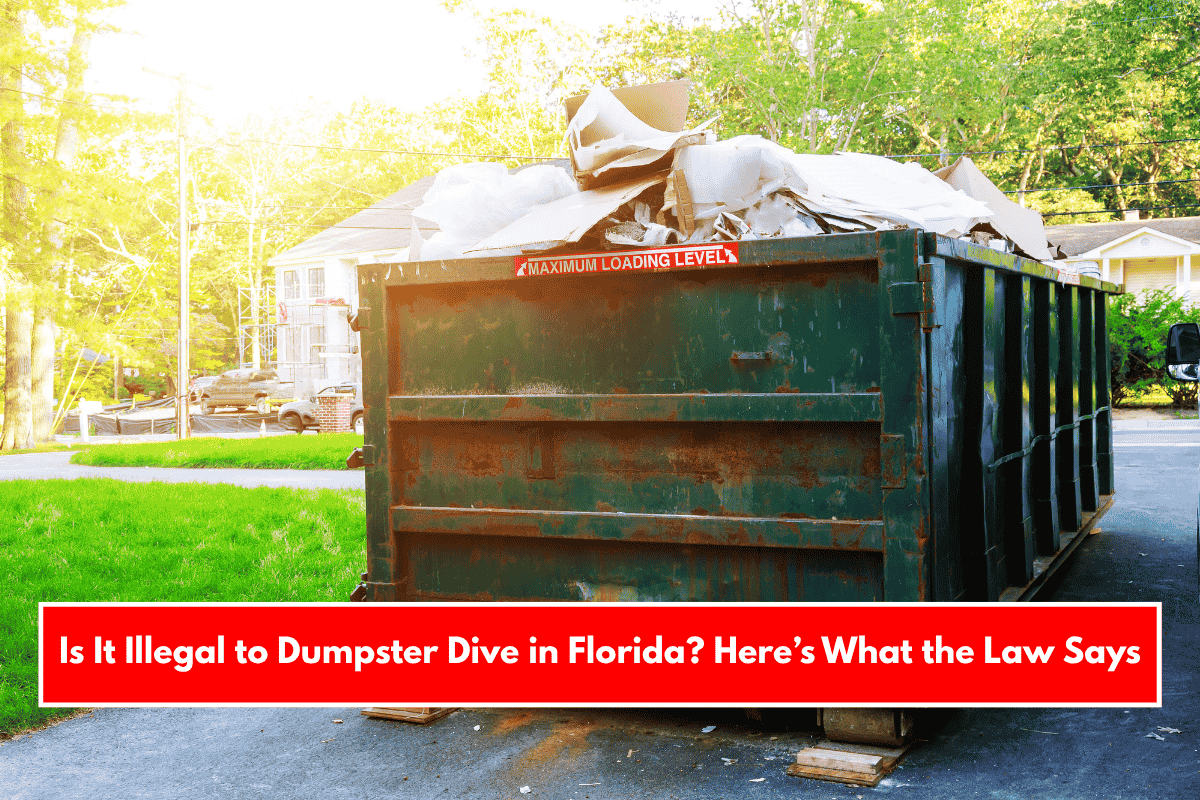Dumpster diving-the act of searching through commercial or residential trash to find discarded items of value-has gained popularity for reasons ranging from environmentalism to economic necessity. But is it legal in Florida? The answer is nuanced and depends on a mix of federal precedent, state law, and local ordinances.
Federal and State Legal Background
At the federal level, dumpster diving is generally legal in all 50 states, including Florida. This is rooted in the 1988 U.S. Supreme Court decision in California v. Greenwood, which held that there is no reasonable expectation of privacy for trash left for collection in a public space. Once trash is placed at the curb or in a publicly accessible dumpster, it is considered abandoned property, and anyone-including police or private citizens-can search or take it.
Florida does not have a statewide law that specifically prohibits dumpster diving. Therefore, as a baseline, the practice is legal across the state.
Trespassing and Private Property Issues
Despite the broad legality, the most significant legal risk for dumpster divers in Florida comes from trespassing laws. Many dumpsters are located on private property-behind stores, within fenced enclosures, or in areas marked with “No Trespassing” or “Private Property” signs. Entering these areas without permission is illegal, regardless of your intent.
- If a dumpster is on public property or in a publicly accessible area: Dumpster diving is generally legal.
- If a dumpster is on private property, behind a fence, or marked with warning signs: Entering to access the dumpster is trespassing and can result in fines, arrest, or even jail time.
Florida trespassing penalties can include a misdemeanor charge, fines up to $500, and/or up to 60 days in jail.
Local Ordinances and City Codes
Florida’s patchwork of local ordinances adds another layer of complexity. Some cities or counties may have specific rules or bans regarding dumpster diving, especially concerning residential trash or waste containers owned by the municipality. For example:
- In certain areas, all household waste is considered the property of the local government once discarded, making removal technically illegal without permission.
- Some city codes explicitly prohibit removing items from waste containers at businesses without the owner’s consent.
Before dumpster diving, it’s essential to check the local ordinances for your city or county. These can usually be found online or by contacting city hall.
Other Legal Risks: Disorderly Conduct and Littering
Even if you avoid trespassing, you could still face citations for disorderly conduct or littering. If your activities disturb others, create a mess, or result in complaints, law enforcement may intervene and issue warnings, tickets, or even arrest you for inappropriate conduct in public spaces.
Best Practices for Dumpster Diving in Florida
To minimize legal risk and avoid trouble:
- Always check for signs: Avoid dumpsters with “No Trespassing,” “Private Property,” or “No Dumpster Diving” signs.
- Never enter fenced or locked areas: These are clear indicators of private property.
- Be respectful and discreet: Don’t make a mess or draw unnecessary attention.
- Know your local laws: Research city and county ordinances before diving.
- Leave if asked: If approached by property owners or law enforcement, comply and leave immediately.
Dumpster Diving Legality in Florida
| Situation | Legal Status |
|---|---|
| Publicly accessible dumpster (no signs) | Legal |
| Dumpster on private property (no permission) | Illegal (trespassing) |
| Dumpster behind fence or locked gate | Illegal (trespassing) |
| Dumpster with “No Trespassing” signs | Illegal (trespassing) |
| Creating a mess/littering | Illegal (littering/disorderly conduct) |
| Local ordinance prohibits removal | Illegal (per local code) |
Dumpster diving in Florida is not illegal under state law, thanks to federal precedent, but local ordinances and property rights can make it a legal gray area. The most common legal pitfalls are trespassing and violating local codes. Always check for warning signs, respect private property, and consult local ordinances to ensure you stay on the right side of the law
Sources:
- https://www.reddit.com/r/DumpsterDiving/comments/16ileei/so_it_is_illegal_dive_in_some_dumpsters/
- https://www.findlaw.com/injury/torts-and-personal-injuries/dumpster-diving.html
- https://www.rolloffdumpsterdirect.com/dumpster-diving-illegal/
- https://scrapsafari.com/dumpster-diving-in-florida/
- https://nearu.pro/lawyers/is-dumpster-diving-illegal















